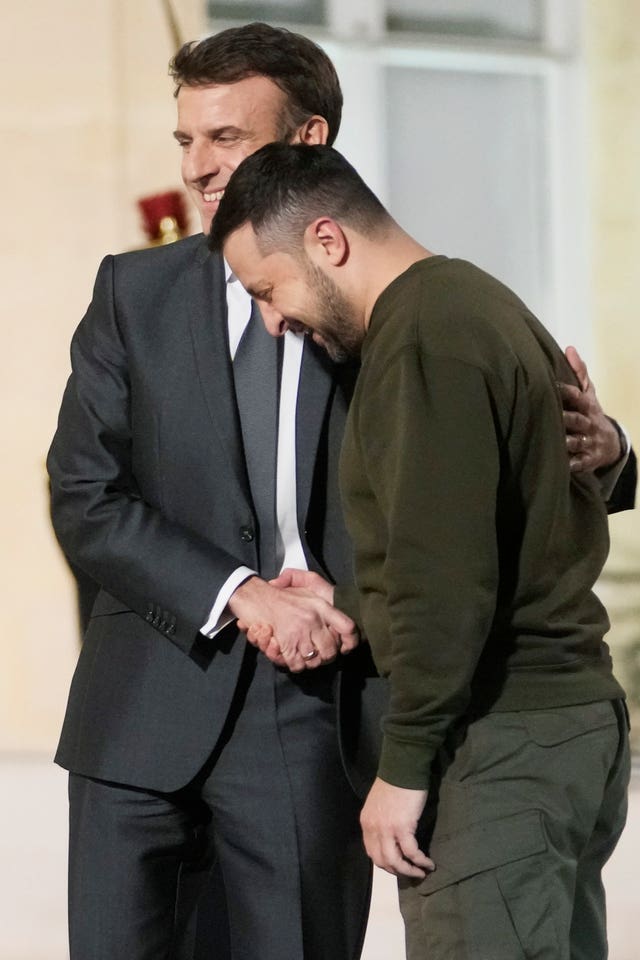International diplomacy is a complex game of strategy and negotiation, where every move can have significant consequences. In recent months, the world has watched as Ukraine's President Volodymyr Zelensky navigated through a series of diplomatic challenges with skill and finesse. His ability to steer clear of potential pitfalls while maintaining his country's sovereignty has been nothing short of remarkable.
Zelensky's adept handling of international relations has become a topic of discussion among political analysts and historians alike. One such instance that highlights his strategic prowess was his deft avoidance of what many termed as the London Trap. This event not only showcased his diplomatic acumen but also underscored the importance of steadfastness in leadership during turbulent times. As we delve deeper into this narrative, it becomes evident how Zelensky managed to maintain Ukraine's position on the global stage without compromising its integrity.
The Strategic Dance Around London
In the intricate world of international politics, every meeting holds potential risks and opportunities. The so-called London talks were no exception. These discussions, involving key players from the UK, France, and Germany, aimed at addressing pressing issues related to Ukraine's territorial integrity, particularly concerning Crimea. However, these negotiations carried an inherent danger—a possibility that could lead to concessions detrimental to Ukraine's national interests.
Volodymyr Zelensky demonstrated exceptional prudence by sidestepping any premature commitments or predictions regarding election outcomes. By doing so, he ensured that Ukraine remained steadfast in its stance against relinquishing claims over the Crimean Peninsula. His approach was characterized by a commitment to learning from historical mistakes, as echoed by UK Prime Minister Sir Keir Starmer during one of their meetings in London.
This strategic non-engagement allowed Zelensky to preserve Ukraine's bargaining power while keeping all options open for future negotiations. It highlighted his understanding that hasty decisions often result in unfavorable agreements, especially when dealing with adversaries known for disregarding established protocols.
A Lesson From History: Avoiding Repeated Errors
Historical precedents play a crucial role in shaping current diplomatic strategies. For Zelensky, avoiding repetition of past errors became paramount. The Minsk agreements served as a reminder of Russia's propensity to violate negotiated terms, making trust a scarce commodity in Russo-Ukrainian relations. Consequently, Zelensky adopted a cautious yet resolute posture towards any proposed ceasefires or peace deals.
His refusal to entertain Donald Trump's ceasefire proposal exemplified this cautious approach. Recognizing the volatility of agreements with Russia, Zelensky prioritized safeguarding Ukraine's sovereignty above all else. This decision was influenced by insights provided by figures like Heather Cox Richardson, whose expertise in political history offered valuable context to unfolding events.
Moreover, the influence of other leaders, such as Boris Johnson, further reinforced Zelensky's resolve. Johnson advised against accepting early peace deals that might undermine Ukraine's long-term interests, urging Zelensky to focus on actions beneficial solely to his nation rather than succumbing to external pressures.
Global Alliances and Domestic Challenges
As part of his broader strategy, Zelensky sought to strengthen alliances with Western nations while addressing domestic concerns. His visit to London symbolized more than just diplomatic courtesy; it represented a concerted effort to garner support from allies like Sir Keir Starmer, who shared similar views on resisting undue influences. Such solidarity proved vital amidst mounting economic uncertainties triggered by global tariffs and trade disputes.
Despite facing criticism from certain quarters, including verbal attacks from former U.S. President Donald Trump, Zelensky maintained composure and focus. He understood that projecting strength and resilience was essential in countering adversarial narratives designed to weaken Ukraine's resolve. This unwavering commitment resonated well within both governmental circles and public opinion back home.
Furthermore, incidents unrelated directly to Ukraine—such as North Korean soldiers blowing themselves up to avoid capture—underscored the universal nature of resistance against oppressive regimes. While seemingly distant, these events paralleled themes relevant to Ukraine’s struggle, reinforcing Zelensky’s message about standing firm against aggression and betrayal.

